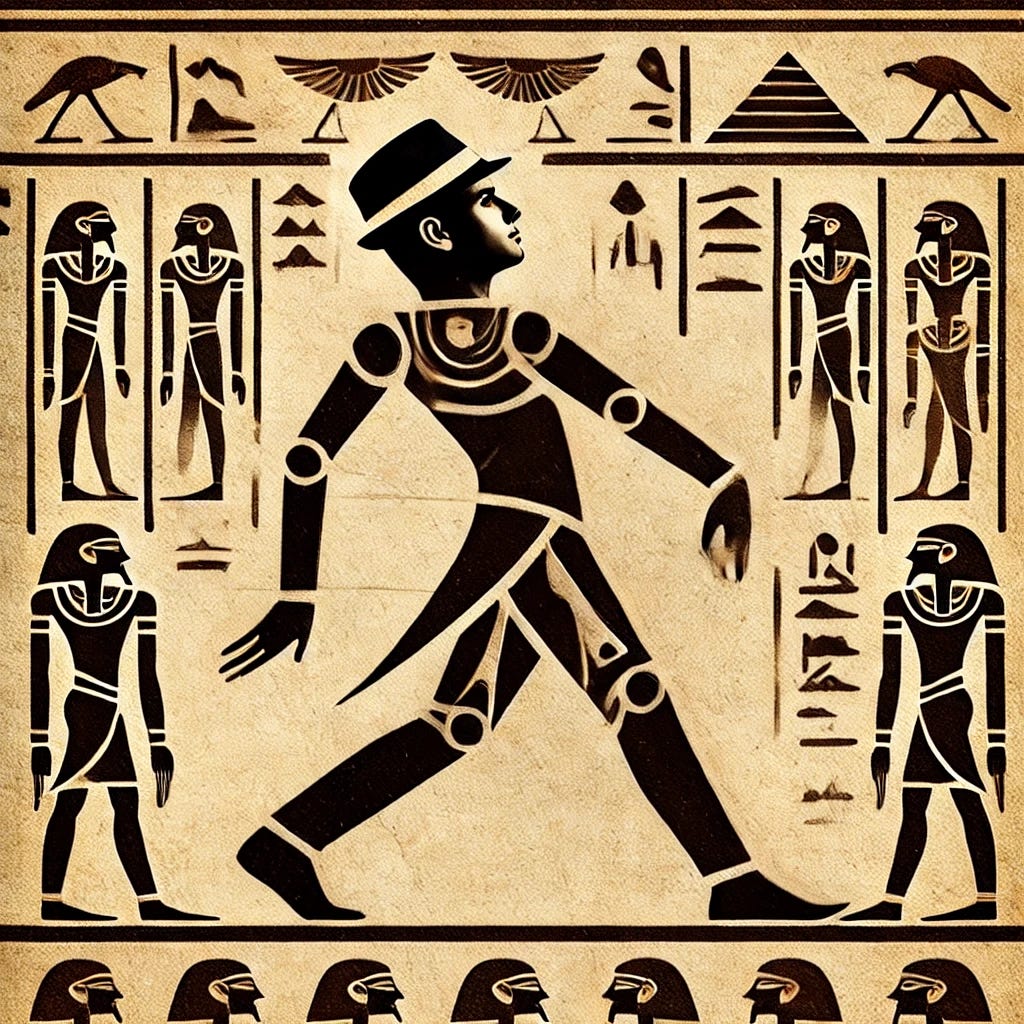Is Assimilation the Worst Thing? Parashot Shemot
In a prior post on Shemot, I noted how Eliyahu Munk omitted translating Rashbam on vayishretzu, and suggested reasons, including a game of musical chairs, in which by vayishretzu this, it couldn’t mean the famous midrash about the miraculous six-fold births.
As I was exploring that, I came across the Seforno’s comments about vayishretzu and surrounding pesukim, and saw how there was a slight interpretive weight cast to these comments within Eliyahu Munk’s English translation.
Recall again some of the pesukim. Shemot 1:1:
וְאֵ֗לֶּה שְׁמוֹת֙ בְּנֵ֣י יִשְׂרָאֵ֔ל הַבָּאִ֖ים מִצְרָ֑יְמָה אֵ֣ת יַעֲקֹ֔ב אִ֥ישׁ וּבֵית֖וֹ בָּֽאוּ׃
These are the names of the sons of Israel who came to Egypt with Jacob, each coming with his household:
and Shemot 1:6:
וַיָּ֤מׇת יוֹסֵף֙ וְכׇל־אֶחָ֔יו וְכֹ֖ל הַדּ֥וֹר הַהֽוּא׃
Joseph died, and all his brothers, and all that generation.
and Shemot 1:7:
וּבְנֵ֣י יִשְׂרָאֵ֗ל פָּר֧וּ וַֽיִּשְׁרְצ֛וּ וַיִּרְבּ֥וּ וַיַּֽעַצְמ֖וּ בִּמְאֹ֣ד מְאֹ֑ד וַתִּמָּלֵ֥א הָאָ֖רֶץ אֹתָֽם׃ {פ}
But the Israelites were fertile and prolific; they multiplied and increased very greatly, so that the land was filled with them.
and Shemot 1:8:
וַיָּ֥קׇם מֶֽלֶךְ־חָדָ֖שׁ עַל־מִצְרָ֑יִם אֲשֶׁ֥ר לֹֽא־יָדַ֖ע אֶת־יוֹסֵֽף׃
A new king arose over Egypt who did not know Yosef
Seforno comments on these four verses:
ואלה שמות. אלה הנזכרים בכאן היו ראוים להודע בשם כי כל אחד מהם ראוי להיות נחשב איש על שמו המורה על צורתו האישיית. ואלה כל ימי חייהם היו למאורות, ולא יצא הדור לתרבות רעה. אמנם אחרי מותם לא היו הצדיקים שבבניהם כל כך חשובים בעיני אלהים ואדם:
אלה, the ones mentioned here were deserving to be mentioned with their names. The reason is that each one of them possessed sufficient individuality to give meaning to his name. They were all of them an inspiration to their children as not one of them abandoned his family tradition. However, after the death of that generation even the relatively righteous ones among them did not rate so highly in the eyes of G’d or man so that the Torah deemed it necessary to tell us their names.
וכל הדור ההוא. כל שבעים נפש, שלא בא הדור לקלקול גמור כל ימיהם:
וכל הדור ההוא, all of these 70 souls. None of the members of this group of migrants had assimilated to the Egyptian culture during their lifetime.
פרו וישרצו. ואחר שמתו כל שבעים נפש נטו לדרכי שרצים, שרצים לבאר שחת, ובכן
ויקם מלך חדש על מצרים וכו'. אף על פי שהיה זכרון ממנו בדברי הימים למלכים בלי ספק, בפרט בענין החדוש אשר שם לחוק לא עלתה על לב המלך החדש אפשרות היותו מזה העם, ושהיה עם זה ראוי לשאת פנים לעמו בעבורופרו וישרצו, after the last of the original 70 migrants had died, their whole lifestyle became more like that of creeping insects, creatures headed for destruction. This is why when ויקם מלך חדש על מצרים אשר לא ידע את יוסף, although there can be no question that in the annals of Egyptian history the 80 year reign of Joseph and his legislation saving Egypt from the famine was duly recorded, as well as how he legislated that the whole land would belong to Pharaoh and the farmers would become his tenants, it did not occur to anyone to associate the Hebrews of his time with the family of Joseph who had been so highly esteemed. The idea that the present day Hebrews deserved special consideration on account of their illustrious forbears did not occur to anyone observing the way these Hebrews behaved at that time.
There are slight changes and additions I could perhaps take issue with, some marked in bold or italics. For instance, it was the king, not anyone, and maybe we should read it that he didn’t think that they were related at all to Yosef, because of the cognitive dissonance, so the idea of special consideration never came up. Not that the Egyptians knew but decided it didn’t matter.
But what really stood as a difference that Seforno did not explicitly say was the casting of the Hebrew’s bad behavior as “assimilation to the Egyptian culture.”
I could see how that could make sense. Elsewhere, in Vayikra 18:3, we know about maaseh eretz mitzrayim, which are types of sexual immorality. Separately, in the contemporary frum society, assimilation is related to going off-the-derech (OTD). Was the problem that these Hebrews in Egypt because Hellenists, or whatever the Egyptian equivalent was?
On the other hand, there’s the famous non-existent midrash (at least that joins all three together) that the Hebrews in Egypt didn’t change:
their mode of dress (levusham)
their language (leshonam)
their names (shemam)
[all which have similar letters describing them], which generally means that they did not assimilate. Maybe Eliyahu Munk is trying to be polite and euphemistic, by alluding to evil practices as assimilation to Egyptian culture?
Note only are those words “assimilation to the Egyptian culture” not present, but it is a rendering / interpretation of לקלקול גמור, but elsewhere, ולא יצא הדור לתרבות רעה becomes “not one of them abandoned his family tradition”. This is a loose rewording of Seforno’s words, but it casts it in the same general direction — assimilation.
It is possible that that is what Seforno meant, and the Hebrews because just the same as regular Egyptians. But, it feels to me like Seforno intends something else, and it is something that Pharaoh would think is disgraceful. I am not sure exactly what, and it depends on what Seforno thought about ancient Egyptian culture. But, just to toss out a few examples of what might disgraceful conduct, especially for a people occupying the lower class of a society:
Moral vices. Gluttony, drinking, sexual promiscuity, brutality, lack of generosity, jealousy, gossip, ignoring hygiene, rudeness.
Crimes. Muggings, shoplifting, breaking and entering, molestation, rape, beatings, bribery, and so on.
(Upper classes also have faults and crimes, but they are often different ones.)
I’m not saying that the Hebrews were guilty of any of these things, but perhaps Seforno was thinking along those lines, rather than assimilation to Egyptian culture.


